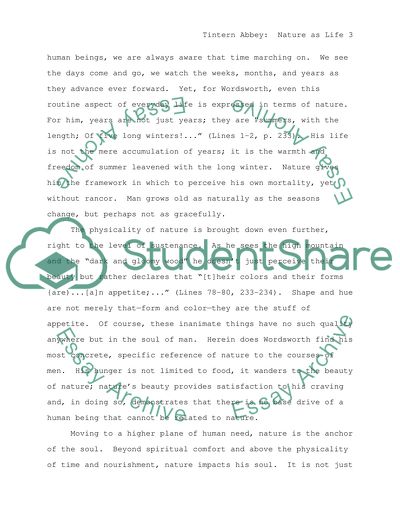Tintern Abbey by William Wordsworth Book Report/Review. Retrieved from https://studentshare.org/literature/1510788-tintern-abbey-by-william-wordsworth
Tintern Abbey by William Wordsworth Book Report/Review. https://studentshare.org/literature/1510788-tintern-abbey-by-william-wordsworth.


